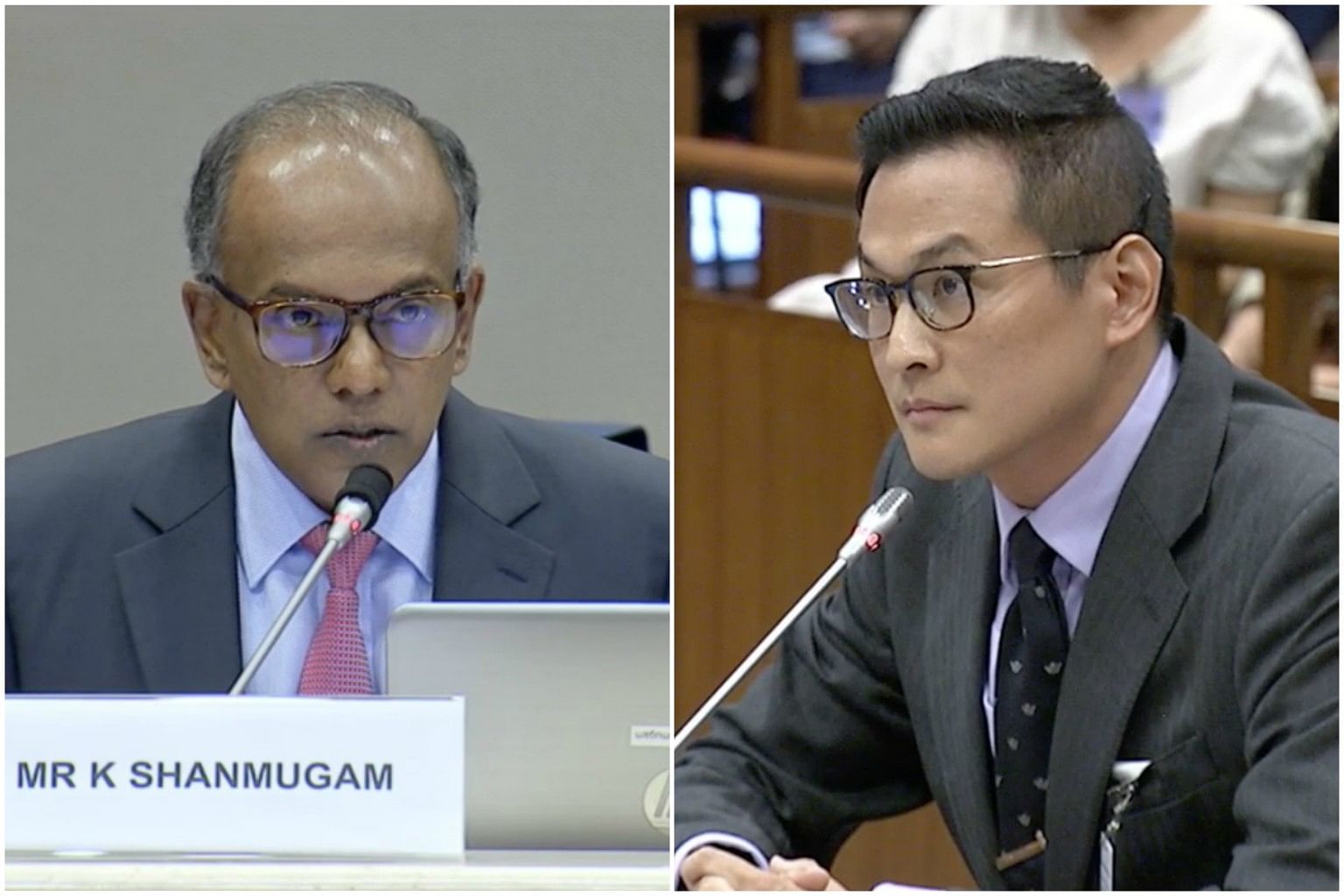Minister K. Shanmugam grills research fellow Thum Ping Tjin and says he is not an objective historian
Sign up now: Get ST's newsletters delivered to your inbox
Yasmine Yahya
Follow topic:
SINGAPORE - Home Affairs and Law Minister K. Shanmugam spent close to six hours on Thursday (March 29) mounting a case that research fellow Thum Ping Tjin had fallen short of the standards of an objective historian, when he accused the People's Action Party of using fake news to detain political opponents.
In particular, the minister grilled Dr Thum on a research paper he had written about the historical circumstances surrounding Operation Coldstore carried out in 1963, when more than 100 alleged leftist leaders and trade unionists were arrested and detained.
Dr Thum contends there is no evidence that the detainees were involved in any violent communist conspiracy to overthrow the Singapore Government.
During the last day of the sitting of the Select Committee on Deliberate Online Falsehoods, Mr Shanmugam sought to discredit that argument.
He raised various historical accounts made by Communist Party of Malaya (CPM) leaders and other researchers which were in conflict with certain points made in the paper by Dr Thum, a research fellow at Oxford University in Britain.
The minister noted, for example, that the paper does not cite CPM head Chin Peng at all.
"You say there is no evidence of any communism in the progressive left... and in saying that you ignore the first-hand accounts of the secretary-general of the CPM," he said.

"A proper, competent historian who makes such a sweeping statement as 'there is no evidence' would say: 'The Number 1 man in the organisation does say things which contradict me but I disagree with him for this reason.' Then people can assess whether you're being accurate or not," Mr Shanmugam added.
Dr Thum replied that it was impossible for him to cite every possible relevant historical source in one academic paper, or explain why he did not cite each one.
"According to conventions of historical writing, it is assumed that you will read all those other sources and you are responding to all those other sources. So there really is no need to cite things which are not part of my central argument," he said.
Following further questions, Dr Thum accepted that there were parts of the paper which he could have worded better. This included his statements concerning a December 1962 telegram from Lord Selkirk, then British Commissioner to Singapore.
Dr Thum, however, pointed out that since his paper's publication in 2013, it has been peer-reviewed and "thus far no historian has... contradicted the central thrust of my work".
To further questioning, he said he had disregarded evidence from Chin Peng and other leading communists because he considered them "unreliable".
He also said he had not read accounts of some of the communist leaders cited by the minister.
Mr Shanmugam also put to Dr Thum that his views on communism, the Communist United Front and Operation Coldstore were contradicted "by the most reliable evidence".
"It ignores evidence which you don't like. You ignore and suppress what is inconvenient and in your writings you present quite an untrue picture," Mr Shanmugam said.
To this, Dr Thum disagreed.
The near six-hour grilling came after Dr Thum said in his written submission to the Select Committee that fake news has not had much of an impact in Singapore, save for one major exception - Operation Coldstore.
"Beginning with Operation Coldstore in 1963, politicians have told Singaporeans that people were being detained without trial on national security grounds due to involvement with radical communist conspiracies to subvert the state," he wrote.
"Declassified documents have proven this to be a lie. Operation Coldstore was conducted for political purposes, and there was no evidence that the detainees of Operation Coldstore were involved in any conspiracy to subvert the Government."
Dr Thum also said in his written submission that Singapore does not suffer from a lack of laws to address online falsehoods. He also argued that the country has too many laws that undermine, discredit, or debase debate and discourse here.

